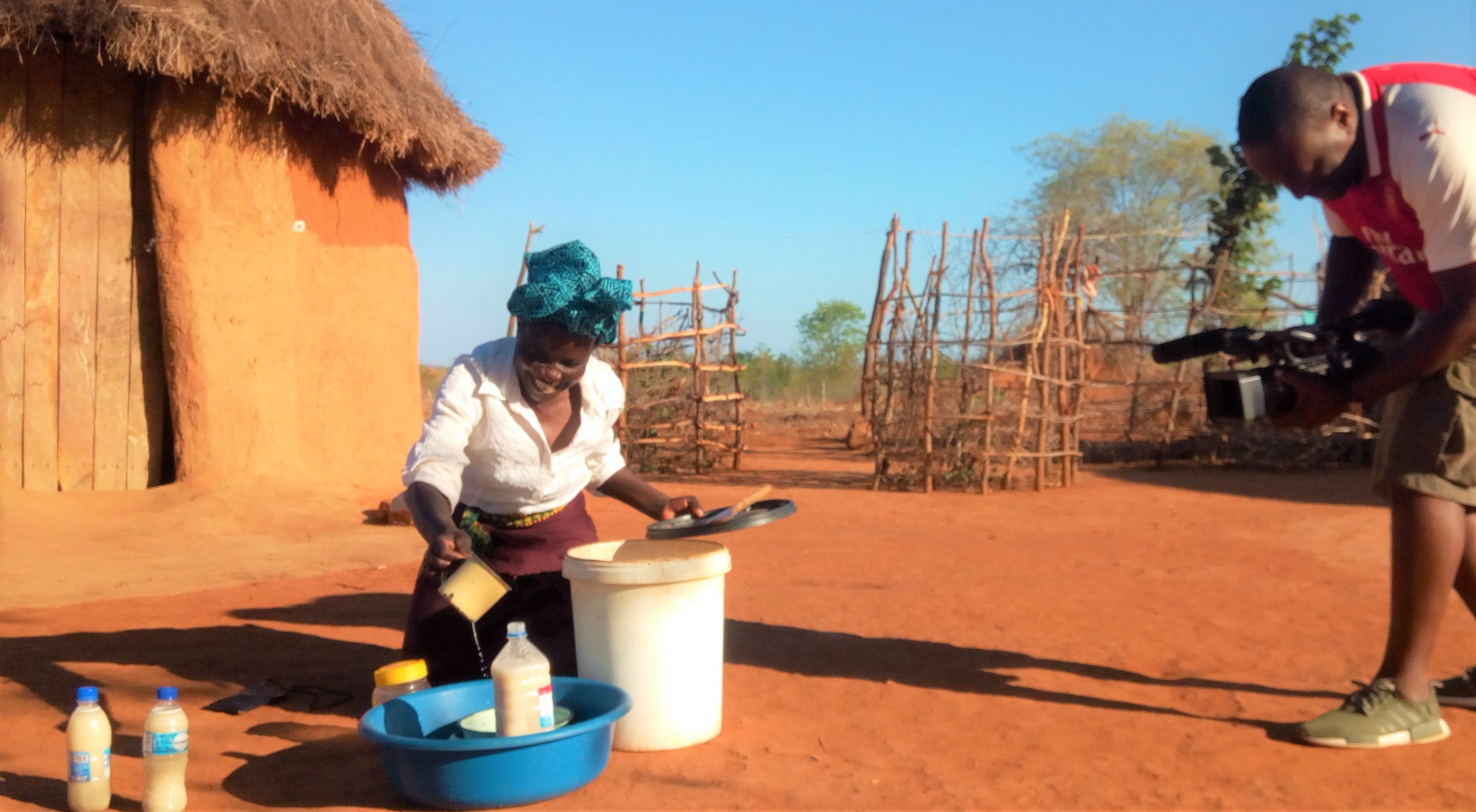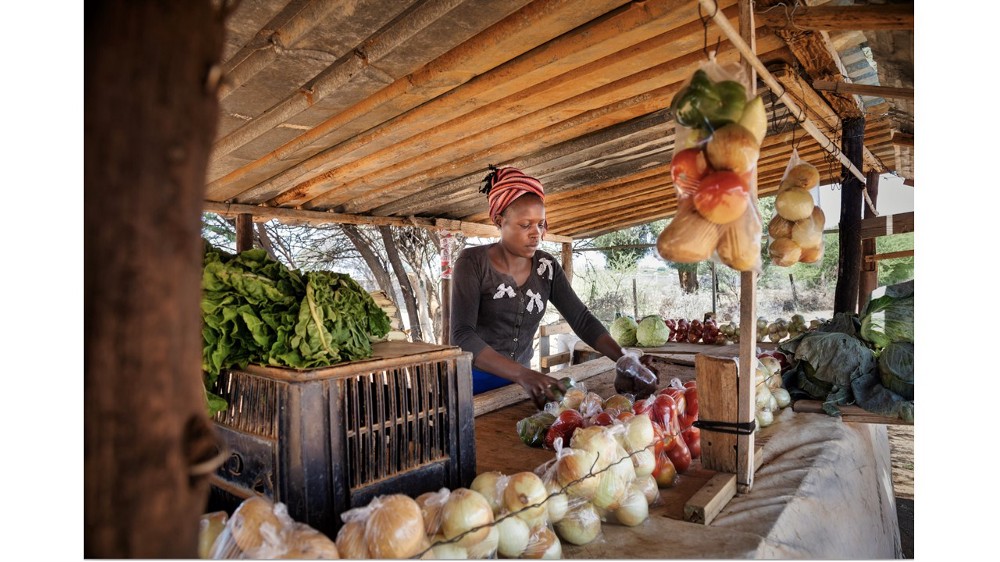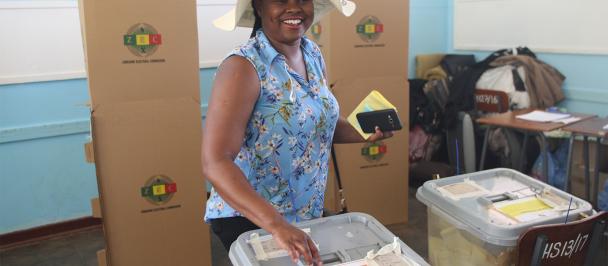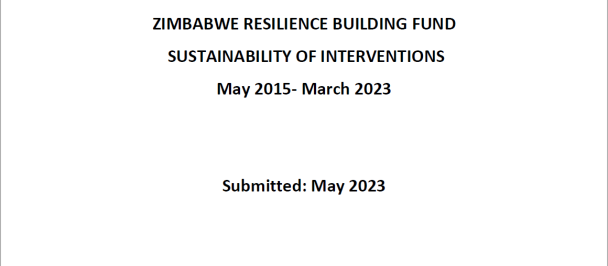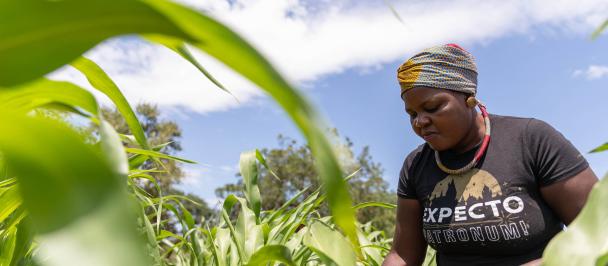Vendor selling produce; image source: Lucian Coman
The visibility of issues on women’s resilience in times of pandemics and disasters is diminished by poor coverage of issues related to their survival.
“In the last year, women’s voices commenting on withstanding hardships and building resilience peaked at only 25%”, read an assessment report by Media Monitors Zimbabwe during the webinar to commemorate International Women’s Month held in partnership with United Nations Development Programme (UNDP) – Zimbabwe Resilience Building Fund (ZRBF) and UN Women. “Furthermore, only 4% of the media coverage during the COVID-19 pandemic in 2020 focused on women”, added the report as it pointed to the massive under-representation of women's voices.
UN Women has been calling for a change in the continued projection of negative and degrading images of women in the international and national media. Moreover, UN Women Country Representative Delphine Serumaga, emphasized that media equals information and information equals power. As such, women’s representation equates to empowerment and increased capacity to overcome shocks and stresses.
“30 years on we are still pointing to women’s burden in disasters, this means the role they play identifies women as more of victims and less of active participants in resilience-building”, she highlighted, exposing the lack of investment in women’s empowerment.
Despite a wide array of activities that are currently underway to ensure women are on the frontline, forecasts in the media have not fully portrayed the role of women in protecting development gains. UNDP’s interaction with rural women has revealed that young female-headed households are particularly vulnerable to shocks and stresses, as their mobility and livelihood options are limited to the burden of caring for younger siblings in the home.
ZRBF is a multi-donor initiative supported by the European Union, the Embassy of Sweden, The UK Foreign, Commonwealth and Development Office (formerly DFID) and UNDP, which has been assisting communities to proactively plan and prepare for economic, environmental, climatic, and social shocks and stresses. Speaking during the webinar, UNDP Resident Representative Georges van Montfort said women and girls must be supported to not only rebuild their lives after COVID-19 but increase their resilience to be better prepared to face future crises. Bouncing back better is critical.
“The ZRBF’s crucial role in agriculture, food security and management of disasters has empowered women to become more active participants in the economy. These efforts have expanded women’s economic opportunities, diversified their income streams, as well as building a substantial reserve that they can easily turn to whenever they experience shocks and stresses”, said Georges.
The media webinar attended by over 70 media practitioners across the country discussed ways to mainstream women’s resilience issues in reporting to advance their issues and protect their welfare and livelihoods.
“When we begin to position women’s realities in the media there turn out to be a need for a support system so that exposure of their vulnerabilities as women, does not take away their confidence”, said Sally Ncube, Director of the Women’s Coalition of Zimbabwe.
The report by Media Monitors also stated that urban-centric coverage of COVID-19 led to the silencing of women's voices and engagement from the rural parts of Zimbabwe. One of the participants, Victoria Ruzvidzo, Managing Editor at The Herald vowed to transform the ways women’s realities are adequately covered.
“We are glad to learn more about the UNDP’s (ZRBF) progress and have also taken note of the concerns raised by the programme’s ongoing monitoring of adaptive and absorptive capacities of women and promise to use our influence to change things in the newsroom”, she said.
Women’s empowerment is a pre-condition to achieving the Sustainable Development Goals (SDGs) which lie at the core of the 2030 Agenda and the news media are crucial influential actors to advance gender empowerment and equality.

 Locations
Locations